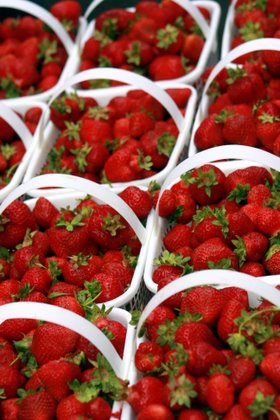
The North Asheville Tailgate Market, a Saturday morning staple for anyone who loves fresh food, has been going on in north Asheville for about 30 years. According to its website, the NATM is the “oldest producer-only farmers market [and] continues to expand to meet the increasing demand for local, fresh goods”.
As happens every Saturday during what they call the “core” season, on my recent visit, about 40 vendors offered everything from apples to zucchini. A leisurely walk, winding around and through the booths, easily puts you in mind of what it must’ve been like 100 years ago when families came to town from the farm to sell their produce.

Tailgate or farmers markets were once common, before they were replaced with grocery stores and supermarkets that sell produced, packaged food, typically manufactured and shipped from remote locations.
The NATM features produce grown naturally and locally and is very fresh. Since the produce is grown locally, farmers can pick it at the peak of flavor — an excellent way to preserve the nutritional value. And since the food is locally grown and locally sold, it doesn’t have to travel as far to get to your dinner table. The obvious difference in distance means savings on fossil fuel

Farmers who are selling direct to the public — or end user — are important for the health of the environment and the water supply. Sustainable and managed farms conserve soil and provide a place for wildlife to live. Additionally, modern farmers markets help maintain important social ties by linking rural and urban populations as well as close neighbors.
The NATM hours are 8 a.m. until noon on Saturdays from mid-April to December. The day-vending fee is a $30 per day. On the other side of downtown, you’ll also find the Asheville City Market on Saturdays, 8 a.m. to 1 p.m. For some other tailgate markets in the region, check out Appalachian Sustainable Agriculture Project’s website at http://avl.mx/3l




Appreciate the link of other local tailgate markets. Who has the best Purple garlic?